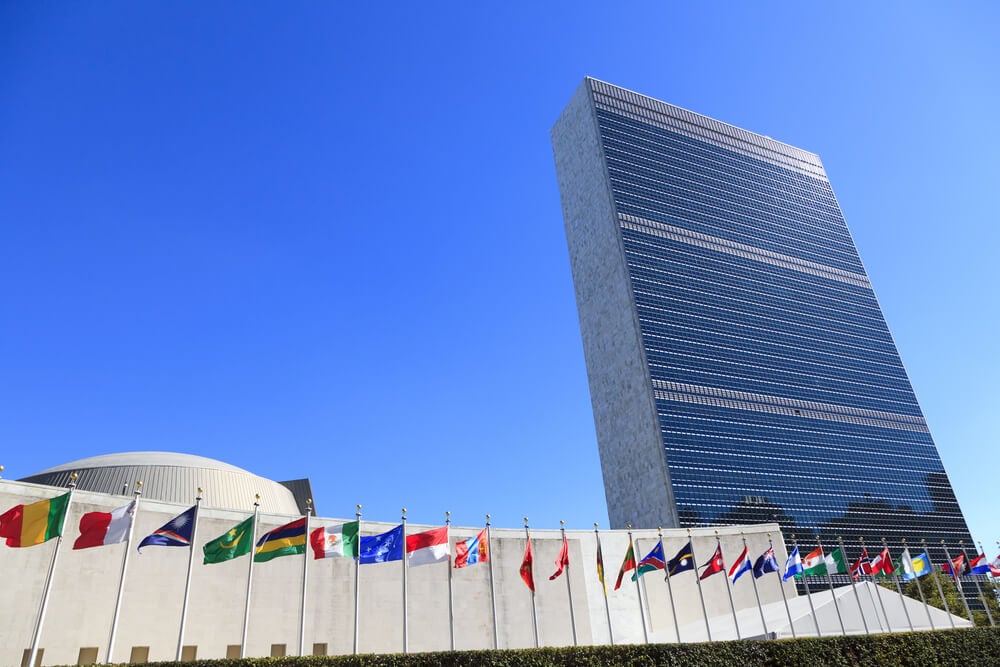Russia and China are often portrayed as partners in a quest to weaken and even destroy the rules-based international order. In reality, however, it is only Russian President Vladimir Putin who seeks that goal.
Chinese President Xi Jinping, by contrast, wants to lead the way in reforming the international order, thereby establishing China as its heir and future custodian. After all, Xi reminds the West, China helped establish the current arrangements.
While World War II came to Europe in 1939, it began in Asia two years earlier, when a clash between Chinese and Japanese troops near Beijing escalated into full-scale war.
By that point, China had already been resisting Japanese forces largely alone for eight years, since Japan’s 1931 invasion of Manchuria.
As Japan expanded its campaign of conquest, China continued this fight, sustaining massive losses.
Through determination and sacrifice, China earned its place in WWII’s “Big Four” (with the Soviet Union, the United Kingdom, and the United States).
At the Cairo Conference of 1943, Chiang Kai-shek, China’s Nationalist leader, joined US President Franklin D. Roosevelt and British Prime Minister Winston Churchill as an equal.
The resulting Cairo Communiqué called for Japan to relinquish the Chinese territories it had seized and established China as a principal architect of the postwar settlement.
Chinese delegates attended the Bretton Woods Conference of 1944, where the International Monetary Fund was created and the groundwork for the World Bank was laid.
At the San Francisco Conference of 1945, China became the United Nations Charter’s first signatory.
And in the debates that produced the Universal Declaration of Human Rights in 1948, the Chinese philosopher and diplomat P.C. Chang distinguished himself by insisting that any universal framework must reflect not only the principles of Western individualism, but also Confucian notions of community, duty, and precedent.
At one point, then-Chair of the UN Commission on Human Rights Eleanor Roosevelt later recalled, Chang “suggested that the Secretariat might well spend a few months studying the fundamentals of Confucianism!”
The rules-based order is in everyone’s interest
This history – often forgotten in the West – holds important lessons. First, the existence of a rules-based order is in everyone’s interest.
The UN, the IMF, and the World Bank are under considerable strain nowadays, with critics calling them outdated or even irrelevant.
But abandoning them is not a benign proposition; it would open the way for the logic of raw power to define international relations again.
Shared purpose is essential to resilience
Second, shared purpose is essential to resilience. China’s prolonged resistance to Japanese forces in the 1930s and 1940s showed that, with unity and resolve, societies can withstand extraordinary pressures.
As we confront pandemics, escalating climate disruptions, and deepening geopolitical rivalries, such determination will make all the difference.
Xi’s objective is not to abandon global institutions
Lastly, no country can go it alone. Though mistrust underlay China’s wartime diplomacy, Chinese leaders recognized the importance of cooperating with the UK, the US, and the Soviet Union to ensure that any postwar settlement accounted for Chinese interests.
After the establishment of the People’s Republic in 1949, China distanced itself from the postwar world order, with Mao Zedong dismissing international institutions as tools of Western power.
But in the 1970s, China returned to the fold, regaining its UN seat in 1971 and launching its “reform and opening up” in 1978.
Since then, China has fostered deep ties with the rest of the world and built up tremendous economic and geopolitical clout – certainly enough to earn it a place as a leader in international decision-making.
Xi’s objective is to update and reform, not abandon, existing global institutions
Xi’s objective is to update and reform, not abandon, existing global institutions, especially by giving developing countries a greater voice within them.
He also seeks to establish new ones – such as the BRICS group of major emerging economies and the Asian Infrastructure Investment Bank – that are committed to advancing the interests of the Global South.
China’s dual experience
To be sure, even as China touts international cooperation, it rejects foreign interference in its affairs.
This stance, too, is rooted in history: China remembers the period from 1839 until the end of WWII, when imperial powers invaded and annexed its territory and subjugated its people, as a “century of humiliation.”
 The question for 2025 is not whether the order that was established in 1945 remains relevant, but whether it can be renewed
The question for 2025 is not whether the order that was established in 1945 remains relevant, but whether it can be renewed
China’s dual experience of influence and subjugation is a defining feature of its foreign policy, and when it comes to reforming multilateral institutions, it may prove to be a valuable asset.
As a founding member of the postwar global order, and as a country that has known subjugation and isolation, China is well positioned to balance the demands of power with the imperative of inclusion.
The question for 2025 is not whether the order that was established in 1945 remains relevant, but whether it can be renewed.
Relevance requires reform, legitimacy demands inclusion, and authority must be earned through flexibility, reliability, and engagement. China seems to understand this.
One hopes that it can help the world to recover the spirit of resilience and dialogue that animated the aftermath of WWII and that we need today to adapt the international order to new realities.
Ana Palacio, a former minister of foreign affairs of Spain and former senior vice president and general counsel of the World Bank Group, is a visiting lecturer at Georgetown University.